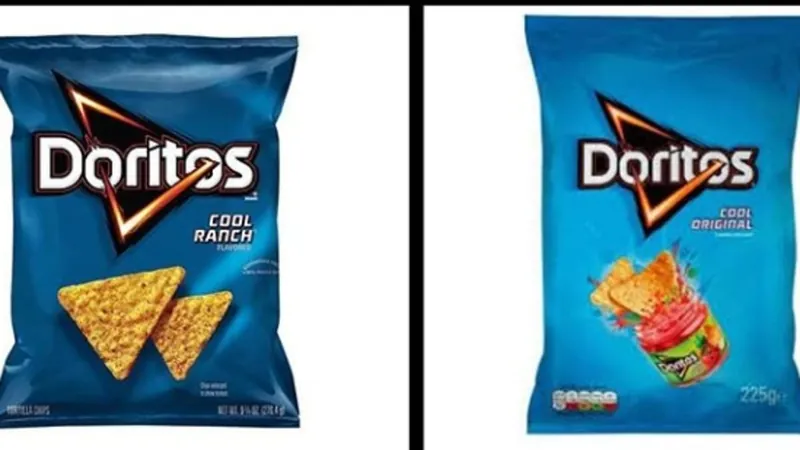
Surprising Differences in US Food Ingredients Raise Health Concerns
2024-12-14
Author: Kai
Introduction
Food experts are raising alarms about the increasing number of chemicals and additives found in American food products, many of which have been linked to serious health risks, including cancer.
Shocking Reality
Dr. Dariush Mozaffarian, director of the Food is Medicine Institute at NYU, highlighted a shocking reality: "There are now hundreds, if not thousands, of substances added to our foods for which the true safety data are unknown to independent scientists, the government, and the public." This statement echoes the ongoing concerns about food safety and regulation in the United States.
Comparison Between US and UK Food Products
It's well documented that major food manufacturers often alter their products for international markets to comply with stricter regulations. A notable investigation found that American food products frequently contain a far higher number of additives than their UK counterparts. For instance, a popular brand of whole wheat bread in the US boasts nearly three times the ingredients compared to similar products marketed in Britain. Snack foods also showcase this discrepancy; the beloved Cool Ranch Doritos in the US consist of 27 ingredients, including harmful additives like Red 40 and Yellow 5, in contrast to just 15 ingredients in the UK version, which safely omits these questionable substances.
Regulatory Differences
Sarah Bond, a food scientist and nutritionist, explained that the UK and EU utilize an E-number system for food labeling, which helps consumers easily identify additives. This proactive approach contrasts starkly with the reactive regulatory framework in the US. The FDA's Generally Recognized As Safe (GRAS) designation allows companies to self-announce the safety of ingredients without mandatory consultation with the FDA, raising red flags about the effectiveness of this oversight.
Specific Additives of Concern
For example, potassium bromate, widely used in the US to enhance dough in baked goods, is banned in several countries due to its documented carcinogenic risks. Studies have shown it can induce kidney and thyroid tumors in laboratory animals. Similarly, food dyes that are common in the US, such as Red 3 and Blue 1, have been scrutinized for their potential effects on children's behavior. A 2007 study linked these dyes to increased hyperactivity in children, prompting further investigations into their safety.
Recent Research Supporting Health Risks
Recent research has further underscored the potential dangers of artificial food dyes and other additives. A pressing study from Brazil in 2024 indicated various adverse health effects tied to synthetic dyes, which included increased cancer risks, allergies, and behavioral issues in children. Despite these alarming findings, some additives, such as titanium dioxide, are still permissible in the US, while Europe has banned them due to concerns about their effects on genetic material and cancer risk.
Lack of Incentive for Reformulation
With minimal regulatory pressure from the federal government, American food manufacturers have little incentive to reformulate their products. Many continue using cheap additives in order to meet consumer demands for low-cost, convenient food options. However, growing advocacy from health groups and concerned parents is pushing for change. High-profile figures, such as Robert F. Kennedy Jr., have called for stricter oversight of food ingredients in the U.S. His proposed "Make America Healthy Again" initiative includes tackling harmful additives prevalent in the food supply.
Conclusion
As the debate surrounding food safety continues, consumers are urged to stay informed about what they are eating and to call for more transparent and health-conscious food production practices. The significant differences in ingredient lists between the US and other countries serve as a stark reminder of the health risks lurking in many everyday products.


 Brasil (PT)
Brasil (PT)
 Canada (EN)
Canada (EN)
 Chile (ES)
Chile (ES)
 España (ES)
España (ES)
 France (FR)
France (FR)
 Hong Kong (EN)
Hong Kong (EN)
 Italia (IT)
Italia (IT)
 日本 (JA)
日本 (JA)
 Magyarország (HU)
Magyarország (HU)
 Norge (NO)
Norge (NO)
 Polska (PL)
Polska (PL)
 Schweiz (DE)
Schweiz (DE)
 Singapore (EN)
Singapore (EN)
 Sverige (SV)
Sverige (SV)
 Suomi (FI)
Suomi (FI)
 Türkiye (TR)
Türkiye (TR)